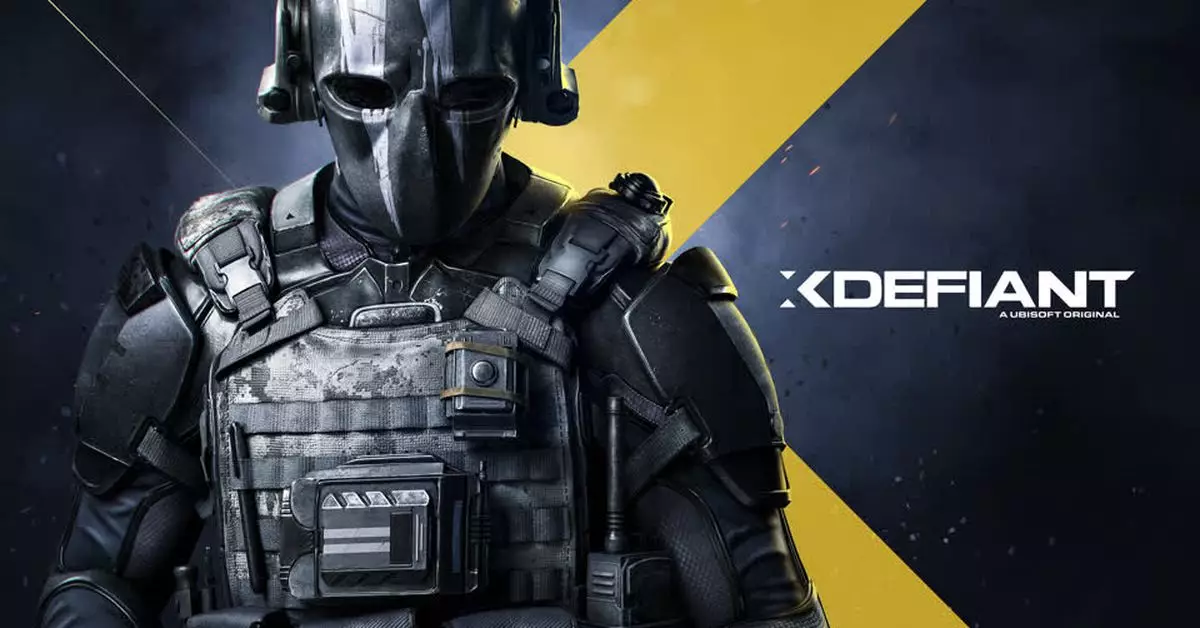Ubisoft has become a familiar name in the gaming industry, known for its diverse portfolio of engaging titles. With the recent launch of XDefiant, a free-to-play team-based shooter, they aimed to capture a significant slice of the competitive gaming market. However, barely months into its launch, the company announced the game’s cessation of development, marking a swift exit reminiscent of their earlier project, Hyper Scape. This abrupt decision raises questions about the sustainability of free-to-play models in a competitive landscape.
Initial Promise and Early Success
Upon entering its closed beta phase, XDefiant generated significant buzz. Ubisoft claimed that the game connected with over 1 million players, which created a foundation of optimism and anticipation for its official launch. Within its initial two weeks of release, the game reportedly attracted over 10 million players and exceeded revenue expectations per session. At first glance, this early enthusiasm suggested a thriving community and a potentially successful title.
Yet, these figures wielded a double-edged sword. As the saying goes, “All that glitters is not gold.” The success of the initial wave of players hinted at a promising future, but the declining concurrent player counts signaled underlying issues that loomed larger.
Despite early successes, retention became challenging. Feedback surrounding gameplay mechanics and content balance started to dominate discussions among the community. By autumn, reports of rapidly declining player engagement emerged, with respect to concurrent users dipping below 20,000 across all platforms. This decline in active participation is telling of a broader crisis often faced by free-to-play titles that struggle to evolve or keep their player base engaged.
As interest waned, the flicker of hope for a stable community slowly diminished. User reviews began reflecting frustrations. The disparity between initial hype and ongoing engagement rates exemplifies a troubling pattern in the industry, where developers, faced with a saturated market, often struggle to translate early success into long-term player investment.
Ubisoft’s announcement to officially shut down XDefiant’s servers marks a stark conclusion to what could have been an exciting addition to the shooter genre. The decision to cease new player registrations immediately and prepare for server shutdown in June 2025 reflects a decisive pivot. Despite efforts to ease the transition—like making Season 3 content available and refunding recent purchases—these gestures do not negate the disappointment felt within the community.
The gaming industry is witnessing a growing number of once-promising titles being phased out rapidly, leaving players disillusioned and developers tasked with learning from past mistakes. The swift death of XDefiant serves as a poignant reminder that success in gaming is not solely defined by initial engagement, but rather by the enduring ability to adapt and nurture a dedicated player base.
Ubisoft’s experience with XDefiant should serve as a vital lesson for developers vying to enter the competitive arena of free-to-play games. Consistent player engagement, meaningful content evolution, and community-driven feedback loops are essential pillars for sustained success. As gaming continues to evolve, so too must the strategies of its creators, lest they risk becoming yet another cautionary tale in an ever-changing industry landscape.


Leave a Reply